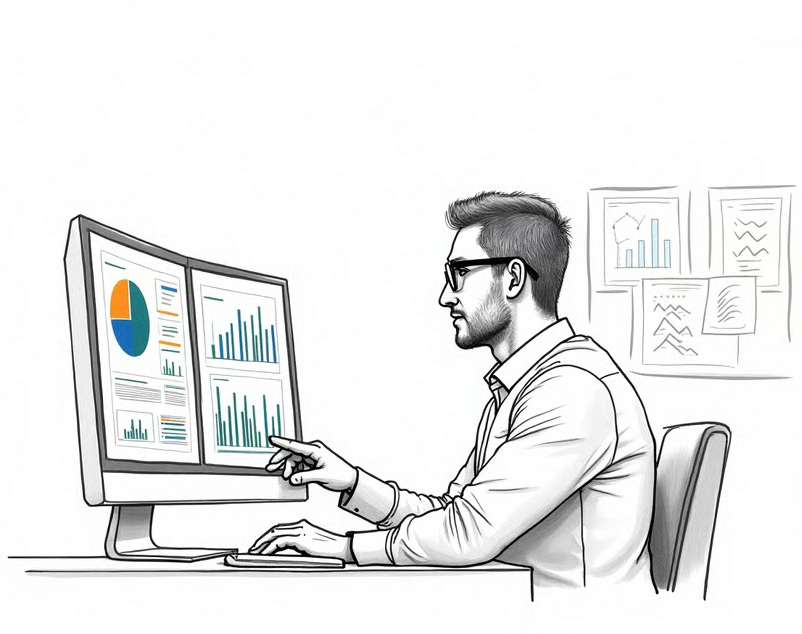
Roles, Responsibilities, and Importance in a Company
In today’s data-driven business world, information is the new currency — but raw data is only valuable when it is structured, interpreted, and delivered in a meaningful way. This is where the Reporting Manager plays a crucial role.
🌐 Who is a Reporting Manager?
A Reporting Manager is a professional responsible for designing, maintaining, and delivering accurate reports that reflect key performance metrics, trends, and insights within a company.
They act as the bridge between data and decision-making, helping managers and leadership teams make informed and timely business decisions.
📌 Key Responsibilities of a Reporting Manager:
- Data Collection & Validation
Gathering data from various departments (sales, operations, finance, production, etc.) and ensuring it is accurate and consistent. - Report Design & Development
Creating well-structured reports, dashboards, and templates using tools like Google Sheets, Excel, Power BI, or custom-built systems tailored to business needs. - Automation & Optimization
Reducing manual efforts through formulas, scripts, and integrations that save time and minimize errors. - Performance Tracking & Analysis
Monitoring KPIs, trends, and productivity metrics to highlight areas of concern or opportunity. - Data Visualization
Presenting complex data in a simple, visual format (charts, tables, summaries) to improve clarity and decision-making. - Interdepartmental Coordination
Collaborating with teams to understand their reporting needs and customize solutions accordingly. - Confidentiality & Accuracy
Ensuring sensitive company data is handled responsibly and reports are error-free and reliable.
💼 Why is the Role of a Reporting Manager So Important?
- ✅ Better Decision-Making
Leaders can only make the right calls when they have the right data in the right format — timely and relevant. - ✅ Operational Transparency
Reporting managers ensure that every department’s performance is measurable and visible. - ✅ Efficiency Boost
Through automation and smart templates, they cut down on repetitive work, saving hours of manual labor. - ✅ Forecasting & Planning
Strategic planning depends heavily on historical data analysis — something reporting managers excel at. - ✅ Accountability
A good report holds teams accountable, making progress measurable and aligned with goals.
✨ Final Thoughts
In a world flooded with data, a Reporting Manager turns chaos into clarity.
They don’t just make reports — they empower organizations to make smarter, faster, and more confident decisions.
Whether you’re running a factory, managing a sales team, or overseeing operations, having a skilled Reporting Manager is not a luxury — it’s a necessity.
“A well-crafted report is not just numbers on a page; it’s a story of your business, told the right way.”